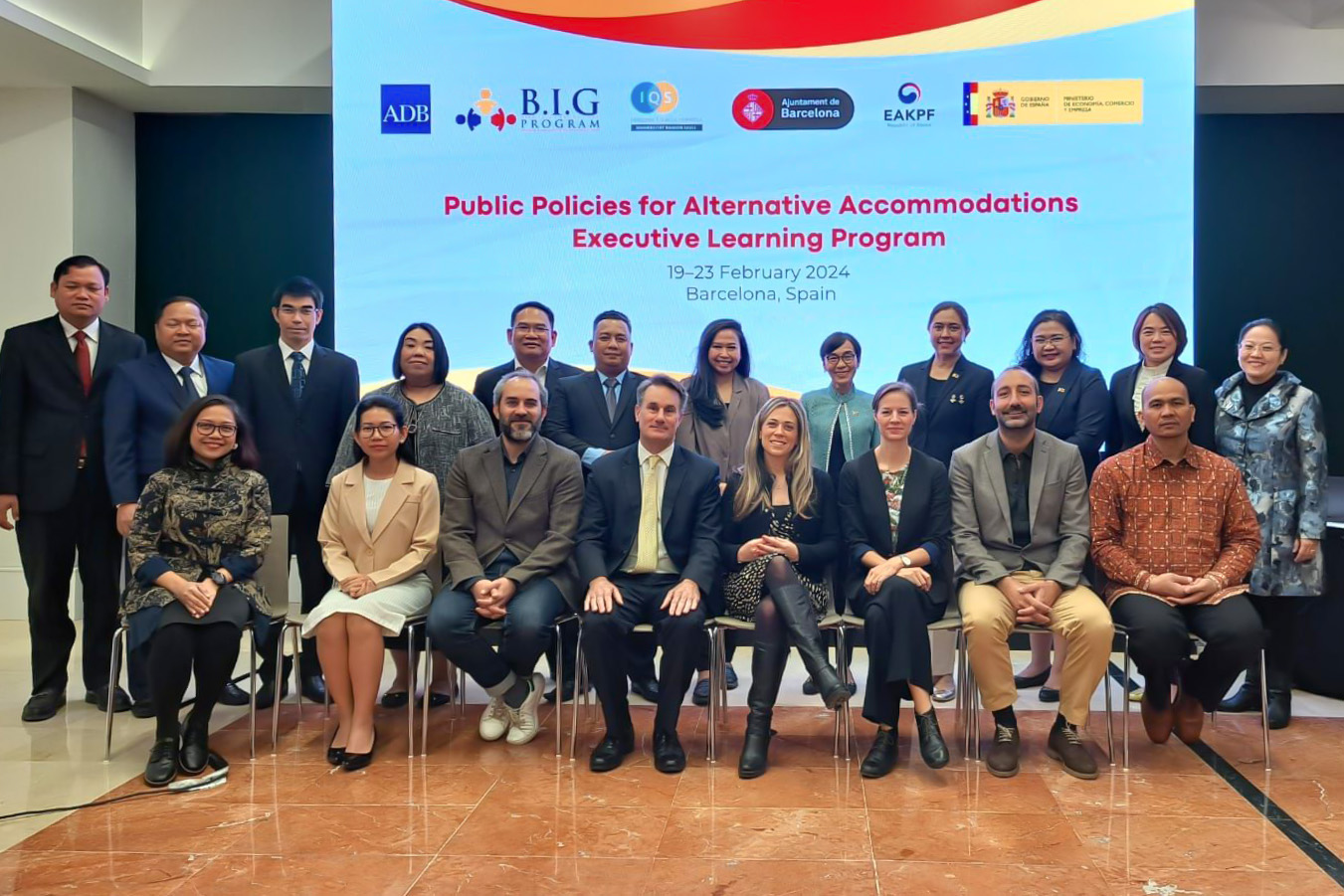The Asian Development Bank (ADB), in collaboration with the IQS Department of Tourism, Sustainability, and Innovation and the support of the Spanish Cooperation Fund for Technical Assistance and the e-Asia and Knowledge of the Republic of Korea Association Fund, held the Executive Education Programme on Public Policies for Alternative Accommodation. This programme, held from 19 to 23 February 2024 in Barcelona, was developed with the objective of improving the ability of tourism officials to craft effective public policies for alternative accommodation.
The IQS Department of Tourism Organizes a Training Programme for Southeast Asia

Alternative accommodations emerged as an integral part of the hosting ecosystem in Southeast Asia, ranging from homestays to apartment rentals and cruises. These accommodations, characterized by their smaller scale and customization, had experienced remarkable growth in recent years, challenging existing regulatory frameworks and tourism policies.
The programme featured representatives from countries such as Cambodia, Indonesia, the Philippines, and Thailand and was aimed at mid- and senior-level tourism officials who were offered knowledge and skills to identify and assess the benefits and negative impacts of alternative accommodation, as well as how to formulate effective policy and regulatory approaches.
The central part of the programme took place on 21 February at the Barcelona Activa facilities in a conference organized by the IQS Department of Tourism, with the Barcelona City Council and APARTUR as noteworthy partners. Public policies for alternative accommodation focused the debate between public and private institutions in the Barcelona tourism sector.
What challenges does the private tourism sector face?
Among other sessions, the event featured a roundtable with participation by Conxa Vilaplana, president of AmfiCat (Catalan Association of Shared Home Hosts), Silvia Pastor, head of Institutional Relations at APARTUR (Barcelona Association of Tourist Apartments), and Didac Garcia, European Affairs Manager of the Barcelona Hotel Guild. During this roundtable session, key concepts were brought up related to the challenges that are currently faced in relation to the regulation of alternative accommodation, as well as industry initiatives.
Conxa Vilaplana stated that shared housing is an activity that is prohibited in Barcelona, but allowed in other parts of the world. She also sought to express her surprise at this decision, since it was her association itself that petitioned for the Catalan government to regulate this activity. Vilaplana emphasized that these shared homes do not compete with hotels or tourist apartments as their activity is carried out, for the most part, by and for families with economic needs.
Silvia Pastor explained that her organization is working so the Constitutional Court of Spain will revoke the current decree due to the housing emergency. “The most important point for us is the existing licenses. The government can change the regulatory standards, but to do so it has to compensate those affected, and establishing equal compensation for everyone does not make sense as many accommodations are impacted by different criteria such as the season,” Pastor argued.
For his part, Didac Garcia stressed that his organization has been one of the promoters of the GlobalReformbnb project, an international association of hotel associations that works worldwide to find solutions to the issue of short-term rentals and digital distribution. This global forum makes it possible to share best practices and knowledge to achieve goals that would be more difficult to address individually.
Gilda Hernandez-Maskivker, director of the Department of Tourism, Sustainability, and Innovation at IQS stated that “it is necessary to promote this type of gathering in order to contribute to the development and implementation of sustainable policies tailored to the needs of tourist destinations. Spaces for dialogue that promote inclusive governance and foster the ability to analyse tourism phenomena from various perspectives are crucial keys to success.”









